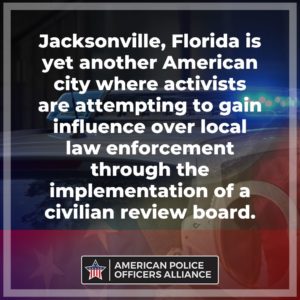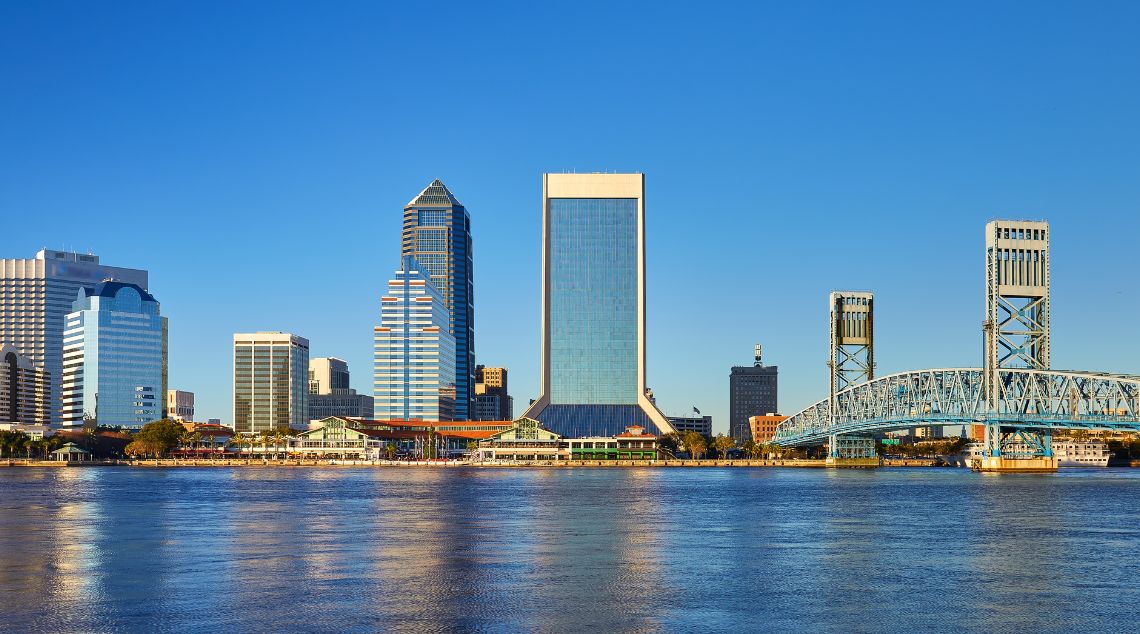Jacksonville, Florida is yet another American city where activists are attempting to gain influence over local law enforcement through the implementation of a civilian review board.
Like in many other cases, activist leaders insist local law enforcement are not accountable and therefore a review board is essential to protecting the rights and safety of the people of Jacksonville. In Jacksonville, the Jacksonville Community Action Committee is leading the charge.
Its executive director, Michael Sampson II, maintains that not only do local police need to be held accountable, but implies that they are a threat to any citizen daring to do so.
“We’ve seen time and time again zero reforms happen. People don’t speak up because they don’t trust that if they do speak up, they will be protected,” he is quoted as saying by First Coast News in Jacksonville.
Protected from whom, exactly?
At any rate, Sampson’s solution is an advisory board. His group would like citizens to have a referendum on creating one in 2024, so that there is time to create a concrete framework to vote on.

“The people of Jacksonville need something concrete in regard to police reform. And right now, I think just electing a new sheriff who says they’re going to be nicer and talk to press more, we don’t think that’s a sufficient matter for police transparency in Jacksonville,” he said.
Randy Reaves, the local Fraternal Order of Police (FOP) president in Jacksonville, not only disagrees with the need for a review board, but strongly opposes them in general, citing the failures and politicization of other review boards around the country.
“To us it’s obvious. We see it around the nation, citizen review boards are controlled by people with emotion, and it’s done by people that want control over police officers. So everywhere you look where citizen review boards, where cities have caved to citizen review boards, crime is rampant, and Jacksonville just does not want to go that down that path,” Reaves told First Coast.
A look into the Jacksonville Community Action Committee’s vision for this board and the inspiration behind it are revealing.
“Community Control Over the Police!” is the call to action listed on its website. For this group, that would include:
- Subpoena Evidence
- Conduct External investigations
- Have access to evidence before and during hearings, not simply review after the police already conduct their investigations, such as is the current model in most cities.
- Participate in balancing the city budget between community needs and the police
- Participate in misconduct and criminal investigation trials
- Assist in specialized trainings and hire/fire practices
- Bridge the communication gap between the community and law enforcement.
With raised fist iconography, references to the Black Panther movement, and the “Ferguson Rebellion of 2014,” it seems obvious that this is an attempt by a radical political organization to embed itself into Jacksonville law enforcement. While civilian review boards are not all the same, this latest example reflects what is wrong with many of them. “Accountability,” “transparency,” and “the community,” are often fronts and buzzwords used by political agents who want control more than anything else.
Imbalance of power leads to a lack of accountability with the public. One solution police reform advocates offer for this alleged structural imbalance is the implementation of civilian police review boards. Can police review boards be a good thing? One Ex-Chief thinks so.









